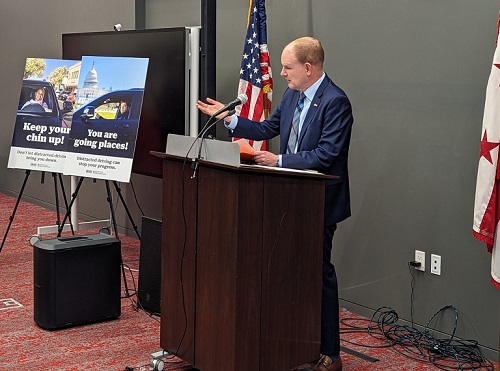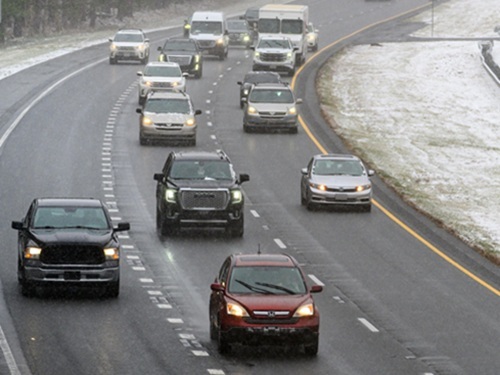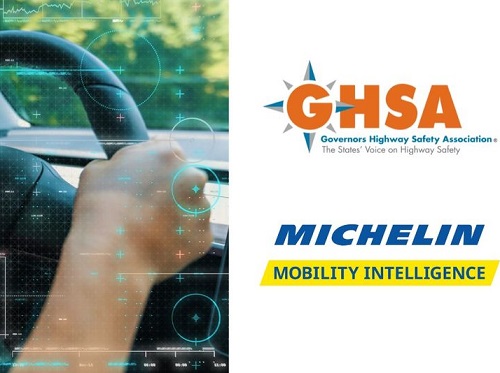The Governors Highway Safety Association and data mining firm Michelin Mobility Intelligence recently provided a total of $300,000 in grants to three states to fund advanced traffic safety data collection and analysis to help make roads safer.
[Above image by GHSA]
State Highway Safety Offices or SHSOs in California, Minnesota, and Washington State each received $100,000 in Michelin data services, allowing them to develop a more current and complete understanding of traffic safety issues, their underlying causes and potential solutions.

“Data underpins every decision we make in traffic safety. Too often, however, roadway safety professionals are reacting to old, outdated information,” said Jonathan Adkins, GHSA’s chief executive officer in a statement. “New and innovative data sources, such as those captured by Michelin, can help states and communities develop a more current, robust and nuanced picture of the most pressing safety concerns and how best to address them.”
Near real-time data collected from a variety of sources – such as vehicles, tires and cell phone apps – can supplement legacy data and provide valuable new insights, Adkins added. Thus, by using both long-term data to identify safety trends and more immediate data that reflects the current situation, states can gain a more complete understanding of what’s happening on the road and what countermeasures should be deployed to have the biggest impact, he said.
Those SHSOs plan to use the GHSA/Michelin grants funding in different ways:
- The California Office of Traffic Safety and its partner agencies plan to use the data provided by Michelin to measure the effectiveness of recent increases in traffic enforcement and target where additional resources may be needed to deter dangerous driving behaviors, with a goal of reducing deaths and serious injury crashes.
- The Minnesota Department of Public Safety Office of Traffic Safety plans to use Michelin-provided data on distracted driving, speeding, and harsh braking – in combination with crash data and other traffic safety information – to implement countermeasures to protect road users in Hennepin County. The agency expects that the lessons learned and data trends traced via this pilot program will provide insights and eventual solutions applicable across Minnesota.
- The Washington Traffic Safety Commission plans to use Michelin’s data analysis in South King County and Yakima County to guide the implementation of projects to improve roadway safety for “underserved communities” as well as identify high-risk locations for crashes. The commission plans to share the findings from this data analysis effort with local public works agencies to encourage infrastructure improvements and inform additional behavior change educational programs.
GHSA noted that Erik Dietz, president and COO of Michelin Mobility Intelligence-North America, plans to share early progress and lessons learned from those projects at the GHSA 2024 Annual Meeting in Indianapolis this September, during a General Session titled “Future Frontiers in Roadway Safety: What’s Coming Next?”
He’ll also discuss the availability and value of commercial transportation data for use in highway safety planning, as well as opportunities and challenges for collaboration in this area, among other topics.
 Nation
Nation
Registration Open for AASHTO’s Winter Rail Meeting
December 19, 2025 Nation
Nation

